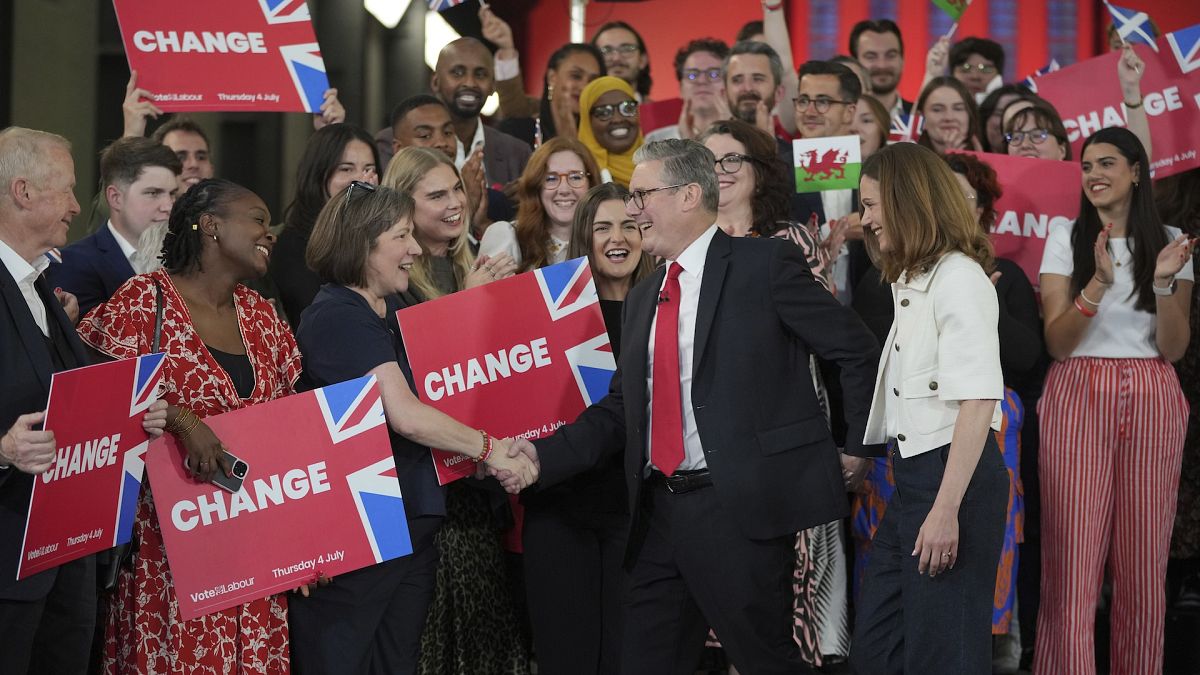The Labour Party wins the UK general election, securing an overwhelming majority. Analysts see positive implications for UK assets and economy.
The Labour Party has won a landslide victory in the 2024 general election, resulting in a dramatic change in the UK’s political landscape. The party has won 410 seats, a significant increase of 212 seats since the 2019 election.
After being invited by Britain’s head of state, King Charles, to form a government, Labour Party leader Keir Starmer will travel to 10 Downing Street, ending the Conservatives’ 14-year tenure.
The Conservative Party suffered a dramatic loss, reducing their representation to just 119 seats, a drop of 249 seats. The Liberal Democrats made notable gains, winning 71 seats, an increase of 63 on the previous election.
This result gives Labour a comfortable margin over the 326-seat electoral threshold, allowing them to pass legislation necessary to implement their political manifesto.
Market reactions
Financial markets had largely anticipated Labour’s decisive victory and initial reactions were therefore relatively reserved.
The British pound rose just 0.1% to 1.2770 against the dollar at 09:30 CET on Friday, but still extended its six-day upward trend. The euro was virtually unchanged against the pound at 0.8472.
Gilt yields saw a modest decline, with the two-year yield at 4.15%, marking the sixth day of easing in the last seven sessions. Long-dated 10-year gilt yields also fell two basis points to 4.18%, although they are up from their June low of 4%.
The FTSE 100 index opened 0.4% higher, with small caps leading the gains. Persimmon, Barratt Developments and Taylor Wimpey rose 3.1%, 2.4% and 2.3% respectively.
The positive sentiment on the UK stock market spread to broader European markets.
The Euro STOXX 50 index rose 0.5%. In France, stocks rose 0.4% ahead of the second round of parliamentary elections on Sunday. In Germany, the DAX index rose 0.6%. Tire maker Continental rose more than 2% after a recommendation upgrade from JPMorgan.
Analysts’ perspectives on UK elections
James Smith, British economist, ING Group:
“The new government faces enormous financial and fiscal challenges. The high government interest rate reflects the fact that the government debt is almost 100% and the deficit is 4.4%.”
Smith added that the Labour Party “will inevitably have to go further than what it promised during the campaign” and made it clear that it wants to avoid further cuts.
Smith suggested that the new government may find it easier to get extra money in its first budget than many expected. “Small tweaks to the tax rules and various adjustments to small taxes and associated exemptions could provide the money needed to reverse the planned cuts.”
Britain’s first-ever female Chancellor of the Exchequer, Rachel Reeves, is expected to take office. The absence of drastic changes to the government’s finances means the Bank of England can continue to cut rates. “Markets are pricing in a 60% chance of a rate cut in August, but we think that is too low. Our call for an August cut is the single biggest reason to expect sterling to weaken.”
James Moberly and Sven Jari Stehn, economists, Goldman Sachs:
“Labour would probably have to increase spending by £14 billion a year more than was agreed at the end of the parliamentary term to prevent departmental spending from falling in real terms, on a per head basis.”
Labour has promised closer UK trade and security ties with the EU to help mitigate some of the economic costs of Brexit. Moberly and Stehn expect “slightly stronger growth in the short term and slightly higher inflation under a Labour majority.”
They believe the impact on the BoE will be limited, but that “there are risks of slower rate cuts if Labour implements a significant increase in the minimum wage.”
Ipek Ozkardeskaya, analyst, Swissquote:
Ozkardeskaya stressed that small and mid-cap UK stocks are likely to benefit more from Labour’s large majority than the broader FTSE 100 Index, which is heavily influenced by global market dynamics and has a heavy weighting in the energy and mining sectors.
Luca Cigognini, Market Strategist, Intesa Sanpaolo:
“Cable (GBP/USD) has maintained a bullish tone and remains around the resistance level of 1.2780. A break above this level could see the price move back above 1.2800 and revive the pound’s ambitions towards 1.2860, the high of June 12.”
Roberto Cobo, BBVA Strategist:
“Starmer is widely seen as market-friendly and orthodox in terms of fiscal policy. Moreover, the markets – and we – are confident that the new government will be vigilant to avoid the kind of chaos that occurred two years ago, when the mini-budget crisis sent UK government bonds soaring.”
BBVA believes that macroeconomic data and the Bank of England’s monetary policy will be the main domestic factors that will influence the pound. For the summer and the rest of the year, they are pessimistic on the pound, expecting a 25bp rate cut by the BoE in August, which is not yet fully priced in. “We see EURGBP rising to levels of 0.86-0.87 in the coming months,” Cobo wrote.
